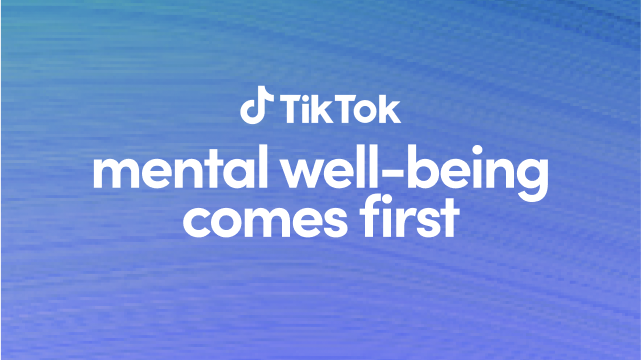On World Mental Health Day on Monday 10 October, TikTok has rolled out a digital well-being programme, supported by freely available resources and in-app tools.
“Mental Well-Being Comes First” is a global campaign to bring awareness of the importance of mental well-being, allow understanding of mental wellness and empower communities to break the stigmas around talking about mental well-being.
Online platforms like TikTok have played a key role in helping mental health activists convey their messages and raise awareness around these pertinent issues with the hashtag #mentalhealth sitting at nearly 50 billion views.
Head of Public Policy & Government Relations at TikTok in Africa Fortune Mgwili-Sibanda explains:
“As the world’s digital destination for community-driven entertainment, TikTok is about inspiring creativity and bringing joy. The mental well-being of our users is therefore of high priority. We will continue to use survey-based data and insights to inform our policies and product development in a way that normalises conversations around mental well-being and encourages principles like self-acceptance and self-care.”
Research conducted by TikTok in South Africa showed that the majority of online users in the country feel comfortable talking about their mental well-being and consider it as being just as important as physical health.
Furthermore, 2 out of 3 survey respondents expressed an openness to being engaged about mental health issues by a social media community.
Over half of respondents mentioned that having access to free mental well-being tools and resources on their favourite social media platforms plays a role in making them feel more comfortable about speaking about mental health issues.
“Of particular interest to us was the fact that respondents belonging to older age groups and millennials seem more open to discussing the topic of mental health than Gen Zs. Almost 50% of millennials however expressed fear around being judged by friends and family if they were more open and publicly vocal about these issues. So, although the evidence suggests that the groundwork has been laid for more authentic conversations, there is still a long way to go. As an entertainment platform, we take our role in driving this positive change very seriously,” says Mgwili-Sibanda.
TikTok’s commitment to fostering a kinder, more inclusive online environment has inspired the development of features such as Screen Time Management and Restricted Mode, which gives users more control over how they use the platform. A comprehensive Privacy and Safety setting allows users to decide who can follow them and send them direct messages or reactions in order to avoid unwanted solicitation.
Over the next month, TikTok will run an initiative aimed at bringing mental health to the fore of online conversation and to inform, empower and inspire its users.
As Mgwili-Sibanda concludes: “our goal over the next few weeks and beyond is to empower and support creators by providing a digital space for them to ask questions, raise concerns and seek advice. Peer support is an integral part of community building on TikTok as well as promoting equal access to information and resources about mental wellbeing. We encourage the TikTok community and broader online platform users to participate in the upcoming events and forums.”


